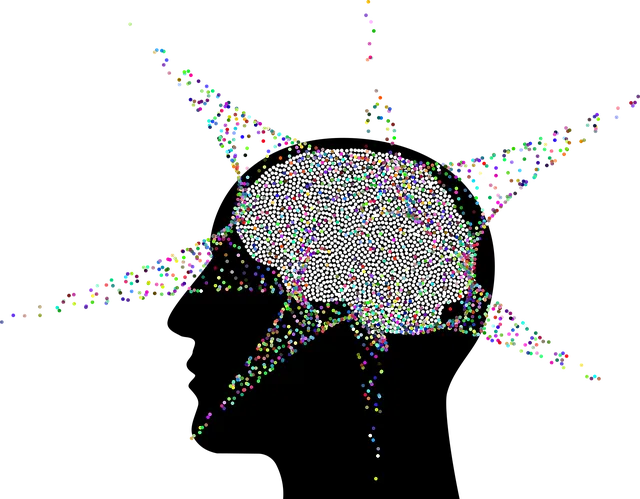Greenwood Village Kaiser Permanente prioritizes risk assessment and mitigation for mental health professionals, using a comprehensive approach that includes patient history evaluation, awareness programs, and a dedicated hotline (Greenwood Village Kaiser Permanente mental health number) for crisis intervention. They integrate empathy-building strategies and evidence-based policies to enhance therapeutic alliances, tailor interventions, and foster resilience among practitioners. This proactive method improves patient outcomes, protects professionals from risks, and ultimately enhances the quality of care in a supportive healthcare system.
Mental health professionals are often on the front line of managing high-risk clients. Effective risk assessment is crucial to ensuring patient safety and quality care. This article provides an overview of risk assessment in mental health care, highlighting the significance of understanding potential hazards and implementing robust mitigation strategies. We explore the Greenwood Village Kaiser Permanente Mental Health Number—a valuable resource for professionals navigating complex cases. By delving into evidence-based practices, this guide equips practitioners with tools to conduct thorough assessments and enhance overall clinical decision-making.
- Understanding Risk Assessment in Mental Health Care: An Overview for Professionals
- The Greenwood Village Kaiser Permanente Mental Health Number: A Key Resource for Risk Management
- Strategies for Effective Risk Assessment and Mitigation in Clinical Practice
Understanding Risk Assessment in Mental Health Care: An Overview for Professionals

Risk assessment is a cornerstone of effective mental health care, enabling professionals to identify and mitigate potential hazards within their practice settings. For mental health professionals at Greenwood Village Kaiser Permanente, understanding this process is paramount. It involves a systematic evaluation of various factors—patient history, current symptoms, environmental influences, and personal vulnerabilities—to anticipate and prevent adverse outcomes. By integrating the Mental Health Awareness and adopting a proactive approach, practitioners can ensure the safety and well-being of both clients and themselves.
The Risk Assessment for Mental Health Professionals goes beyond mere crisis management; it’s a comprehensive strategy to foster resilience and promote positive mental wellness. This involves implementing evidence-based practices, such as regular Mental Wellness Journaling Exercise Guidance, to support individuals in managing their conditions effectively. Such proactive measures not only strengthen patient outcomes but also contribute to the overall health and durability of mental health professionals.
The Greenwood Village Kaiser Permanente Mental Health Number: A Key Resource for Risk Management

The Greenwood Village Kaiser Permanente Mental Health Number serves as a vital resource for risk management within the field of mental health professions. This dedicated hotline offers support and guidance to professionals navigating complex situations, fostering resilience building and positive thinking. By providing immediate access to crisis intervention expertise, it ensures that practitioners are equipped to handle challenging scenarios with confidence and competence.
Equipped with comprehensive knowledge and resources, mental health professionals can better manage risks, protect themselves from potential hazards, and deliver high-quality care. The hotline’s availability underscores the organization’s commitment to promoting well-being among its workforce, ultimately enhancing their ability to provide effective interventions and build stronger connections with those they serve, guided by evidence-based practices and the principles of crisis intervention.
Strategies for Effective Risk Assessment and Mitigation in Clinical Practice

In the realm of mental health care, effective risk assessment is paramount to ensure patient safety and well-being. Mental health professionals at Greenwood Village Kaiser Permanente play a crucial role in identifying and mitigating risks through comprehensive evaluations. A robust Risk Management Planning for Mental Health Professionals approach involves integrating Empathy Building Strategies to foster strong therapeutic alliances, enabling practitioners to grasp patients’ unique perspectives and needs. This nuanced understanding is pivotal in tailoring interventions and enhancing treatment outcomes.
Beyond individual assessments, analyzing broader Mental Health Policy Analysis and Advocacy ensures that systemic risks are addressed. By staying abreast of policy developments and advocating for evidence-based practices, mental health professionals contribute to a supportive regulatory environment. Such proactive risk management not only safeguards patients but also empowers practitioners to provide high-quality care within a responsive healthcare landscape.
Mental health professionals must continually refine their risk assessment skills, leveraging resources like the Greenwood Village Kaiser Permanente Mental Health Number for comprehensive guidance. By integrating effective strategies into clinical practice, they can ensure safer environments and improved outcomes for patients, ultimately fostering a more resilient and supportive mental healthcare ecosystem.






